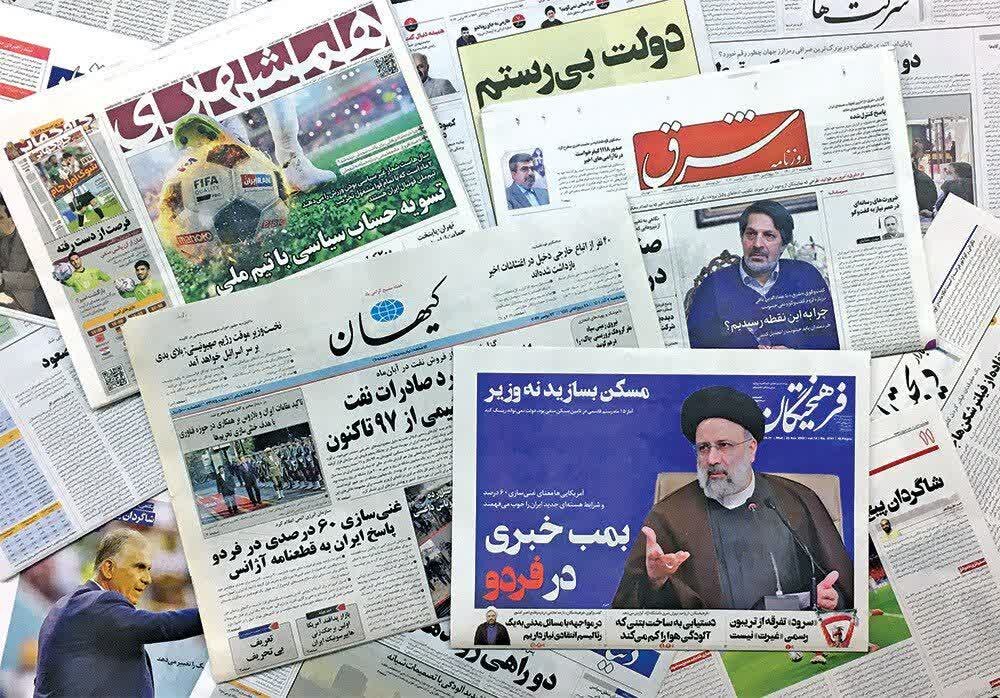Taliban must give Iran’s right of Hirmand

Hamshahri addressed the issue of Iran’s water right from the Hirmand River and said: America’s enmity with Iran has a long history, but the Americans have increased this enmity by building the Kamal Khan Dam and diverting the water towards Godzareh.
In Ashraf Ghani’s government, that was the stooge of Americans, baseless statements like water versus fuel were made; while 820 million cubic meters of water is Iran’s approved right. Governments cannot implement international contracts unilaterally. If the water right is not taken within the next 2-3 months, two-thirds of population of Sistan-Baluchestan province will be involved. No country has yet recognized the Taliban, but we have to take our rights from the Taliban until they are recognized by the United Nations. Although the ambassadors of Iran and Afghanistan are negotiating, these negotiations have not yet led to an agreement. Iran’s political and economic relations with Afghanistan still continue. Afghanistan’s interaction with us is necessary due to Iran’s strategic location. Currently, the only port that is exempt from sanctions is Chabahar. This port is important for the transit of goods to Afghanistan, and Iran has not blocked this route for many years due to humanitarian reasons.
Etemad: American alternative to Belt and Road project in Middle East
In a note, Etemad addressed the goals of a rail network plan between India, the UAE and Saudi Arabia pushed by the U.S. to counter China’s One-Belt-One-Road project. It wrote: The national security advisor of the president of the United States was supposed to meet his Saudi, Indian and Emirati counterparts in Riyadh on Sunday, May 7, to advance the plan. In line with this plan , on Saturday two sources with direct knowledge of the plan told Axios that the U.S., Saudi, Emirati and Indian national security advisers were expected on Sunday to discuss a possible major joint infrastructure project to connect the Persian Gulf and Arab countries via a network of railways that would also be connected to India via shipping lanes from ports in the region.
This project is considered one of the most key initiatives that the White House is pushing for in the Middle East in order to prevent China’s influence in the region. The Middle East is one of the most important parts of China’s Belt and Road project, and replacing Western infrastructure projects with China’s plan can be a serious threat to Beijing’s investments and operations.
Axios said the idea for the new initiative came up during talks that were held over the last 18 months in another forum called I2U2, which includes the U.S., Israel, the UAE and India, according to the two sources. The forum was established in late 2021 to discuss strategic infrastructure projects in the Middle East, it said.
Ham Mihan: Iran’s way was right
In an analysis, Ham Mihan discussed the anniversary of Trump’s withdrawal from the JCPOA, and according to an expert’s analysis wrote: “With the withdrawal of America from the JCPOA and the return of sanctions against Iran, which of course was done in a period of 6 months, Iran did its best and stayed in the JCPOA for a year without reducing its commitments and showed the world that Iran adheres to its obligations and is still willing to return to the JCPOA. In my opinion, the gradual reduction of Iran’s commitments in the situation that America had reversed its sanctions, was a logical and principled action, and it was understandable for the Europeans, Russia, China, and the non-permanent members of the Security Council. We saw the reflection of this global understanding in October 2020. When America wanted to activate the trigger mechanism and prevent removal of arms sanctions against Iran, 13 of the 15 members of the Security Council disagreed with the Trump administration’s request, and their argument was that America is no longer a member of the agreement to use the trigger mechanism. During that period, Iran’s international position was good, and due to the return of sanctions, it was natural that Iran would not continue to fulfill its commitments as before. The only question is that what could have happened if Iran had responded positively to Trump’s numerous requests for negotiations.
Sobh-e-No: The window is not always open
Sobh-e-No dedicated its editorial to the nuclear case and said: The JCPOA cannot remain suspended any longer because with the change in regional balance, international conditions and the passage of time, neither Iran’s nuclear power will remain at its current level, nor the removal of the current sanctions will be the ultimate demands of Tehran. So agreeing on a deal that is ready now without any changes is a more accessible and desirable option for the parties and as Foreign Minister Amir Abdollahian has said the West should use this opportunity until the window of diplomacy and negotiation is open.
Leave a Comment